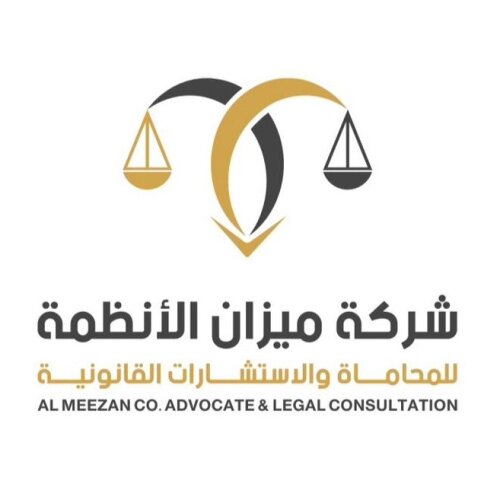Best Commercial Real Estate Lawyers in Makkah
Share your needs with us, get contacted by law firms.
Free. Takes 2 min.
Free Guide to Hiring a Real Estate Lawyer
List of the best lawyers in Makkah, Saudi Arabia
About Commercial Real Estate Law in Makkah, Saudi Arabia:
Commercial real estate refers to properties used for business purposes in Makkah, Saudi Arabia. This includes office buildings, retail spaces, warehouses, and industrial properties. Commercial real estate transactions and operations are governed by specific laws and regulations to ensure smooth functioning of the sector.
Why You May Need a Lawyer:
There are various situations where seeking legal advice from a lawyer specializing in commercial real estate can be beneficial. Some common scenarios include:
- Buying or selling commercial properties
- Drafting or reviewing lease agreements
- Negotiating contracts for construction or renovation projects
- Resolving landlord-tenant disputes
- Understanding zoning and land use regulations
Local Laws Overview:
The legal framework for commercial real estate in Makkah, Saudi Arabia is predominantly governed by the following key aspects:
- Land Ownership: In Saudi Arabia, all land is owned by the state. Ownership rights are granted through leasehold agreements or long-term usufruct contracts.
- Commercial Contracts: Commercial real estate transactions are guided by the Saudi Arabian Contract Law, which lays out the rights, obligations, and remedies for parties involved.
- Foreign Investment: Foreign investors are subject to specific regulations and restrictions when it comes to commercial real estate ownership and operations in Makkah.
- Zoning Regulations: Local zoning ordinances define the permitted uses of land, density restrictions, and other factors that affect commercial real estate development and use.
Frequently Asked Questions:
1. Can a non-Saudi individual or company own commercial real estate in Makkah?
Yes, non-Saudi individuals and companies can own commercial real estate in Makkah through long-term leases or usufruct contracts. However, there may be certain restrictions and requirements for foreign entities.
2. How are commercial lease agreements regulated in Makkah?
Commercial lease agreements are regulated under the Saudi Arabian Civil Law. These agreements should clearly state the terms of the lease, rent payment details, duration, and other rights and obligations of both the landlord and tenant.
3. Are there any specific permits or licenses required for commercial real estate development projects?
Yes, commercial real estate development projects typically require permits and licenses from local authorities. These may include construction permits, environmental clearances, and approvals related to land use and zoning regulations.
4. How are landlord-tenant disputes resolved in Makkah?
Landlord-tenant disputes in commercial real estate are generally resolved through negotiation, mediation, or arbitration. If necessary, the parties can approach the Saudi courts for resolution based on the specific circumstances and lease agreement terms.
5. What are the tax implications for commercial real estate in Makkah?
Commercial real estate income is subject to various taxes, including income tax, property tax, and value-added tax (VAT). It is important to consult with a tax professional or lawyer to understand the specific tax obligations related to commercial real estate activities.
Additional Resources:
For further information and assistance regarding commercial real estate in Makkah, Saudi Arabia, consider reaching out to the following resources:
- Makkah Chamber of Commerce and Industry
- Saudi Arabian General Investment Authority
- Real Estate Development Fund
Next Steps:
If you require legal assistance in commercial real estate matters in Makkah, Saudi Arabia, consider taking the following steps:
- Identify your specific legal concern or requirement.
- Research and shortlist lawyers or law firms specializing in commercial real estate in Makkah.
- Arrange a consultation with the chosen lawyer to discuss your case.
- During the consultation, provide all relevant documents and information to the lawyer for analysis.
- Based on the consultation, evaluate whether you would like to proceed with hiring the lawyer for further legal representation or guidance.
Lawzana helps you find the best lawyers and law firms in Makkah through a curated and pre-screened list of qualified legal professionals. Our platform offers rankings and detailed profiles of attorneys and law firms, allowing you to compare based on practice areas, including Commercial Real Estate, experience, and client feedback.
Each profile includes a description of the firm's areas of practice, client reviews, team members and partners, year of establishment, spoken languages, office locations, contact information, social media presence, and any published articles or resources. Most firms on our platform speak English and are experienced in both local and international legal matters.
Get a quote from top-rated law firms in Makkah, Saudi Arabia — quickly, securely, and without unnecessary hassle.
Disclaimer:
The information provided on this page is for general informational purposes only and does not constitute legal advice. While we strive to ensure the accuracy and relevance of the content, legal information may change over time, and interpretations of the law can vary. You should always consult with a qualified legal professional for advice specific to your situation.
We disclaim all liability for actions taken or not taken based on the content of this page. If you believe any information is incorrect or outdated, please contact us, and we will review and update it where appropriate.













